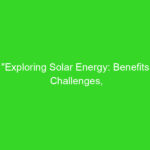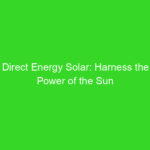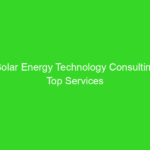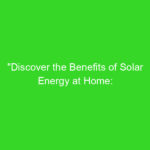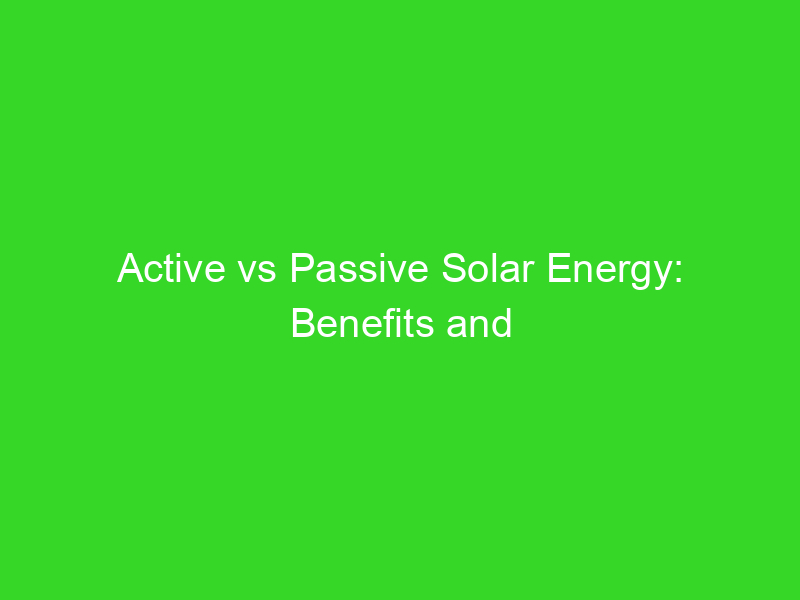
Active vs Passive Solar Energy
Solar energy is becoming an increasingly popular way to reduce our reliance on fossil fuels and create a more sustainable future. There are two main types of solar energy: active solar energy and passive solar energy. In this article, we will explore the differences between these two types of solar energy and the benefits they offer.
What is Active Solar Energy?
Active solar energy refers to the use of mechanical or electrical devices to capture, store, and distribute solar energy. This type of solar energy requires the installation of specialized equipment such as solar panels, batteries, and charge controllers.
How Does Active Solar Energy Work?
Active solar energy systems work by converting sunlight into electrical energy. Solar panels are installed on rooftops or in sunny areas and they absorb the sun's energy. The energy is then converted into electricity, which is either used immediately or stored in batteries for later use.
Benefits of Active Solar Energy
Active solar energy systems have several benefits, including:
-
Reduction in electricity bills- The electricity generated by active solar energy systems can be used to power homes and businesses, reducing the need for traditional electricity sources.
-
Environmentally friendly- Active solar energy systems produce no emissions, making them a cleaner alternative to traditional sources of energy.
-
Increased home value- Installing an active solar energy system can increase the value of a home or business.
What is Passive Solar Energy?
Passive solar energy refers to the use of natural materials and design techniques to capture, store, and distribute solar energy. This type of solar energy does not require any specialized equipment and can be integrated into the design of homes and buildings.
How Does Passive Solar Energy Work?
Passive solar energy systems work by maximizing the amount of sunlight that enters a building and minimizing the amount of heat that escapes. This is achieved through the use of materials such as large windows, reflective surfaces, and thermal mass.
Benefits of Passive Solar Energy
Passive solar energy systems have several benefits, including:
-
Reduced energy bills- Passive solar energy systems can significantly reduce the amount of energy needed to heat and cool homes and buildings.
-
Lower maintenance costs- Passive solar energy systems require little to no maintenance, reducing the overall cost of ownership.
-
Increased comfort- Passive solar energy systems provide a more comfortable living or working environment by maintaining a consistent temperature.
Active vs Passive Solar Energy: Which is Better?
Both active and passive solar energy systems have their benefits and drawbacks. The best system for a particular building or home depends on a variety of factors, including the climate, location, and energy needs.
Active solar energy systems are more efficient at converting sunlight into electricity and are ideal for homes and businesses with high energy needs. They are also more expensive to install and maintain.
Passive solar energy systems are less expensive and require little to no maintenance. They are ideal for homes and buildings in areas with ample sunlight and mild climates. However, they are less efficient at converting sunlight into energy and may not be sufficient for buildings with high energy needs.
Conclusion
In conclusion, both active and passive solar energy systems offer significant benefits and can help reduce our reliance on traditional sources of energy. The best system for a particular building or home depends on a variety of factors and should be carefully considered before installation. With the right system in place, solar energy can help us create a more sustainable future while saving money on energy bills.

